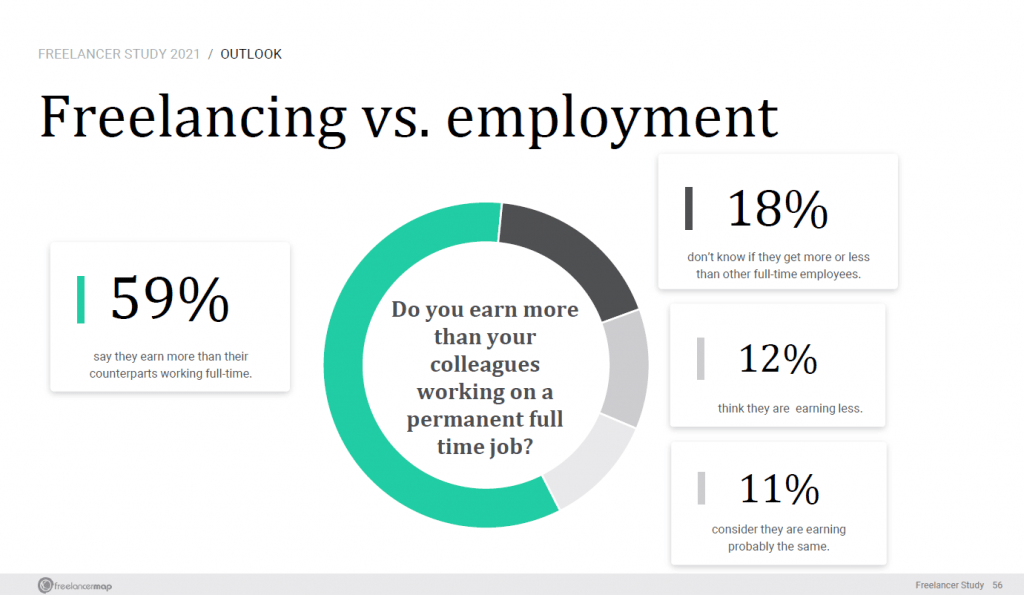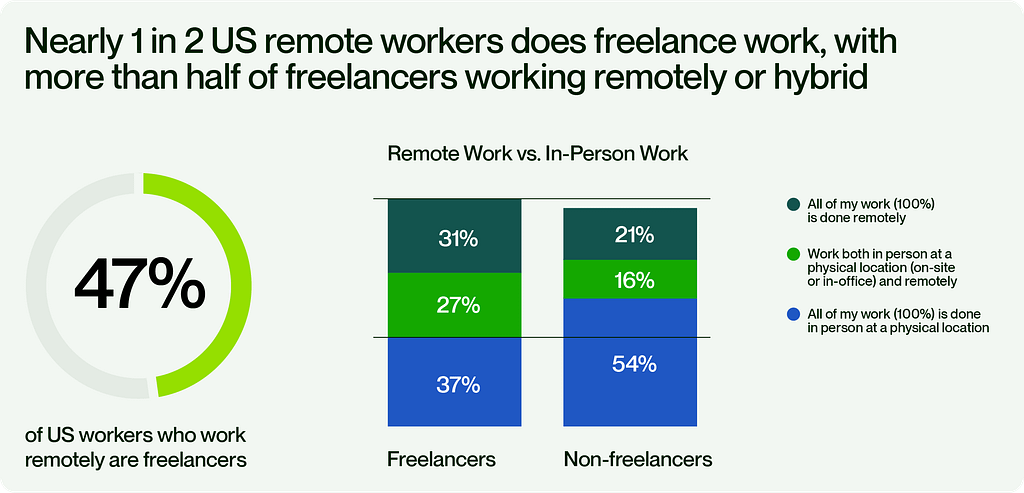
Freelancing vs. Full Time vs. Remote: Which is Better For You? The simple and straightforward answer to the question is what suits you best according to your lifestyle, your environment, your needs, and your ability to comprehend and develop strategies to grow in all aspects.
Many individuals struggle to decide which one is best for them and their lifestyle, while others are just unsure of what these phrases signify. And who can blame them when it’s difficult to tell the difference? The number of people who prefer remote work is rapidly growing these days.
This work is widespread among tech-related people—developers and other IT experts—but it is also popular among IT recruiting firms. Unsurprisingly, this type of work attracts much attention and favorable feedback because there’s so much to like.
Freelancing vs. full-time
Many advantages and disadvantages of freelancers vs. full-time workers may vary by nation; some frequent pros and cons are:
Clients diversity
There are currently around 1.1 billion freelancers around the globe. As a freelancer, you may have the opportunity to work with a wide range of clients worldwide.
However, if you work full-time, you may be pigeonholed into one line of work or sector. It may also be more difficult or problematic to vary how your abilities are employed, mainly if you work in a large firm with a lot of bureaucracy.
Expertise
As a freelancer, you will frequently be regarded as an authority in your field. After all, most freelancers provide a service, and to get employed, they must be exceptionally skilled.
So, if a corporation is seeking workers, particularly for six months, the objective is to recruit a freelancer. If they anticipated longer-term unlimited demands, they would recruit full-time staff.
Your schedule your choice
You will have complete control over your remote work schedule as a freelancer. You can go to a neighboring park and sit in a lawn chair to work. However, with a full-time job, you do not have this freedom. You have a chair and a desk where you can work all day.
Professional grooming
A freelancer communicates with clients via phone conversations or texts, but full-time employment allows you to mingle with college students and participate in office culture and parties.
You also have more goo dealing with people face to face. It all contributes to a person’s professional grooming. Do you know how to be more professional and close high-paying clients? Read this and learn how to do so.
No paid time off
Remember that paid time off (PTO) is a perk for full-time pay if you’re freelancing. Paid leaves are the most significant benefit of being a full-time employee. 20% of Americans, or 10 million people, are contemplating freelancing.
You’re permanent
Having a permanent job is a benefit since it is a job and not temporary employment. Freelancing is beneficial as long as you have clients. You cannot make money if there are no clients.

Full-time vs. remote
Companies question the benefits and drawbacks of employing full-time vs. remote workers. Following are the pros and cons of recruiting remote workers vs. full-time workers:
Self-motivation
Full-time employment necessitates a particular time of day, and you devote your entire day to the task. If you are not self-motivated, you may face issues with your employer since you work fewer hours.
During the pandemic, 25% of remote employees have already returned to the workplace, and another 38% will do so at some time.
Environment and technology
Remote is entirely reliant on technology. The internet and related technologies are the lifeblood of this profession. Nothing gets done if there is no connection.
As a result, you might quickly become sidetracked by other things. Furthermore, a full-time job provides the proper working environment and technological aspects.
Savings
Remote employment allows you to save more money than you spend. Unlike a full-time job, you do not have to pay for bus fare, lunch with college, workwear purchases, or workers. Only 11% of remote employees anticipate returning to work full-time in the office.
Flexibility
Remote employment allows you more flexibility than a full-time job. Working from home will enable you to complete tasks even if you feel under the weather. 17% (9 million) of professionals prefer Working remotely even after the epidemic.

Freelancing vs. remote
One may do both freelance and remote work from home. You have more common advantages and disadvantages. Some unique advantages and disadvantages include:
Job security
Freelancing is not a job; instead, it ends when the project is completed, and the cycle continues. You are tied to a firm and have job security when working remotely.
Taxes
You bear the fee and taxes associated with your assignment when freelancing. However, with remote employment, the company is responsible for all taxes.
Bonus and perks
Remote work allows you to work from home, but the perks and benefits remain. However, there are no bonuses or company advantages with freelancing.
Freedom
You have complete control over the projects you take on and how you complete them when you work as a freelancer. You constantly depend on your management to assign you tasks when working remotely. It may also be against your will.
Also read: FIVERR VS UPWORK VS FREELANCER: WHAT TRUTH YOU SHOULD KNOW?
Hot FAQs: Freelancing vs. Full Time vs. Remote
Is freelancing better than a job?
No, freelancing is an ad hoc job without a guarantee of regular projects. Compared to work, which offers employment stability, no tax deductions, bonuses, and corporate relief.
What are the disadvantages of remote jobs?
Distractions at home, a loss of work-life balance, cybersecurity worries, difficulties upholding confidentiality, and issues with unstable/intermittent internet connectivity are the primary drawbacks of working remotely.
Should I leave my 9 to 5 job for freelancing?
No, full-time workers have the stability of an employment contract, a consistent work schedule, and a steady paycheck, all of which help them budget for the future. If you do like to test freelancing as a career, try getting some clients that equal your payroll. Once you have financial stability from freelancing, you can leave your 9 to 5 job.
Before you go
Whether it is freelancing, a full-time job, or a remote one, what matters is how you make things work and keep climbing the ladder of success. If you are a person who likes freedom and works on your time, freelancing is the best option.
If you like discipline, working with teams, and want to have office exposure, go for a full-time job. However, if you are struggling with managing your work and home, a remote job will suit you perfectly as you can be financially secure and manage your home at the same time.
Related blogs:
THE ULTIMATE COPYWRITING GUIDE TO BOOST YOUR SALES
TOP 7 BEST WORK FROM HOME GADGETS FOR BETTER PRODUCTIVITY







